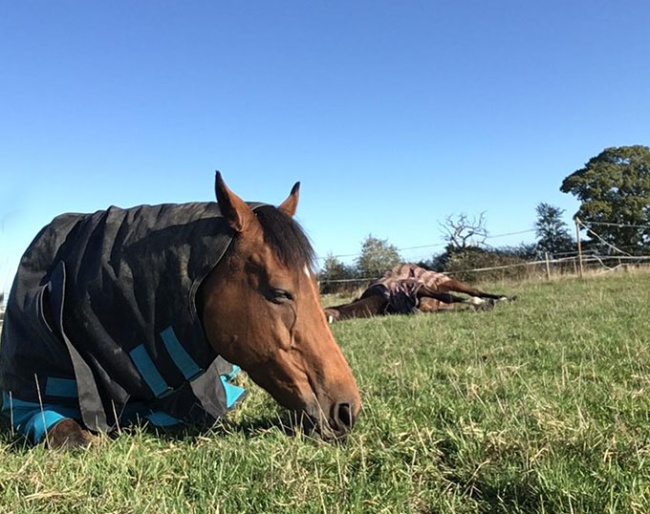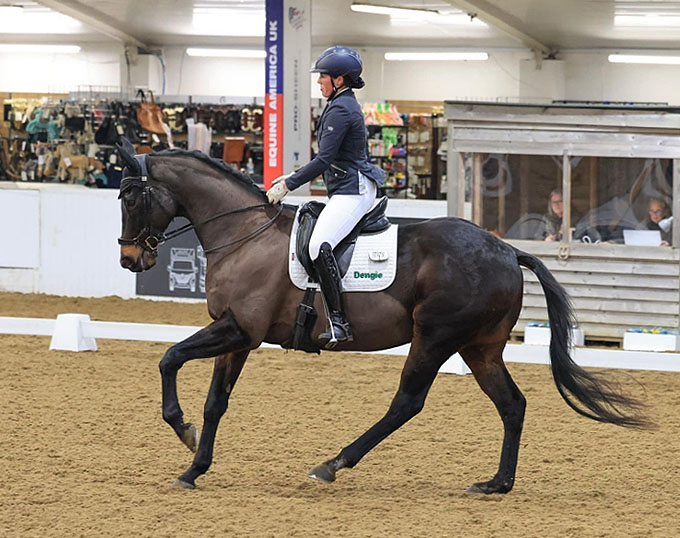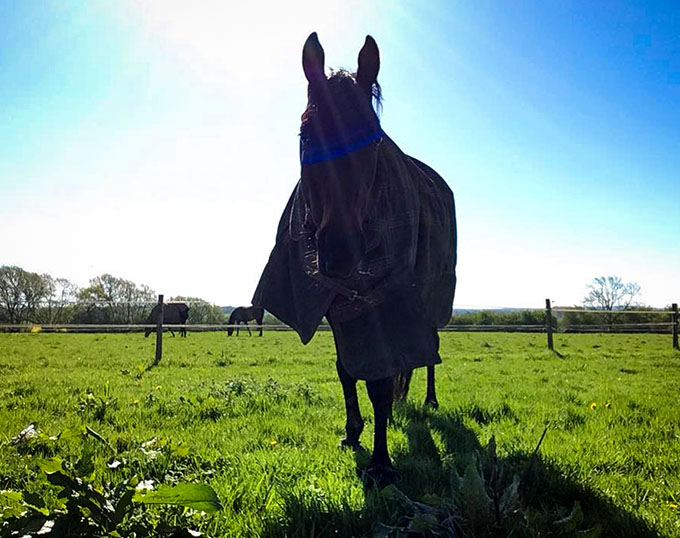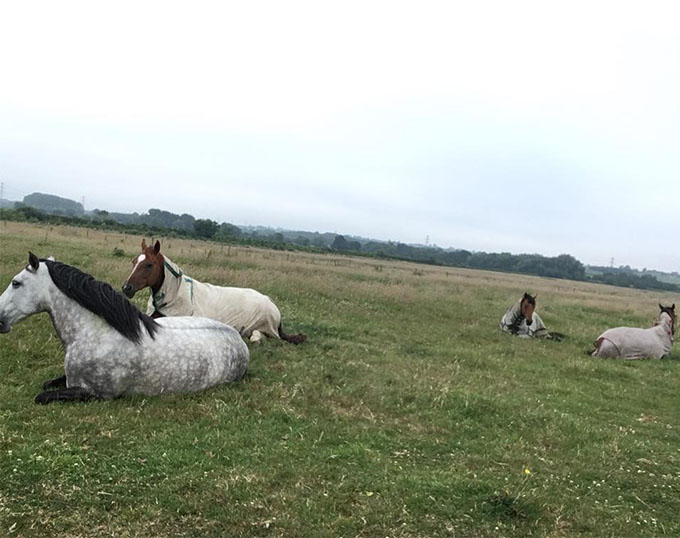
Guest columnist of this week is Louise Robson, a British dressage rider and professional known best for re-training Off the Racetrack Thoroughbreds. She has produced several to advanced level in dressage, including Quadrille xx (by Danehill Dancer xx) bred and owned by the late HM Queen Elizabeth II.
Robson's work with horses has been featured in several articles to Eurodressage over the years.
Thank You Fields
Why my fields are the most important part of my home team...
We are nothing without our home team - FACT
What we see across social media i.e the photos and the videos of us riding, caring and competing our horses, is the final image of all of the hours of blood, sweat and tears put in by every member of our home team. Farriers, physios, vets, saddlers, dieticians etc etc are vital in developing us and our horses to be the best version of ourselves that we want/can possible be.

Thankful
I am thankful to our fields because:
- It allows those who want to play and run the opportunity to be themselves
- It's gives each horse that option to walk, graze, chill, sleep and play
- It’s a massive part in recovery and progression for each of the horses
- It's so important that every day, they get out of their boxes, with their friends to be them
Fields Need to be Used, Not Look Pristine for Appearance
I know I am very very fortunate in the fact that I have, not only, a fair bit of land available to turn our horses out, to allow them big fields, and also have a landlord that isn’t bothered by them being turned out in the winter months and creating mud/divots.
I know this may sound like a very ‘odd’ way of phrasing this, but I know of plenty of people where the owners of the land want pristine condition and ‘appearance’ over horses being out and being able to have some ‘free time’.
Friendship Groups
I am also very fortunate (some may think not) that we have a a good selection of ‘types’ of horses, characters, builds and temperaments, which means that we have the possibility of ‘rotating friendship groups’ to try and find the best fit possible.

The fields allow for herd mechanics to work/kick in and teach those who are maybe, mentally, a little fried, worried and in a state of ‘unrest’ to “chill out' as the horses who are more balanced/have been here longer, soon shove them off the fence line and shove them down the field to go and eat.
I find it fascinating to watch the ‘unsettled’ become settled, merely by ‘the herd’ saying that they don’t like the nervous energy and either ‘running it out of them’ or showing the ‘unsettled’ how its done.
Herd Work
The ‘herd work’ is vital to the retraining as it actually does the majority of the work for me. For the retraining to go well, the brain has to be ‘right’ i.e. settled, not panicked and to be calm and think. The herds/fields keep the horses moving, relaxed and more content in their body and brain, which does translate to the ridden work.
We don’t have ‘big herds’ - only maximum 2/3/4 in each group (mainly threes) - as this stops ‘mass running of thoroughbreds’. Can you imagine the shoe loss! It means less ‘punch ups’ as they’re happy and content in their group.
Settling Down with the 'Foodies'

Once settled and understanding of routine, the horse then goes into a group which best suits their personality and what it is they like/want to do. We have some more ‘playful’ characters, meaning no fly mask or rug is safe and all fair game. We have the ‘we just mooch and graze’ group, we have the pair that stays as a pair and no one joins, we also have the ‘may play/may eat’ group and so on and so on. We have mixed herds and we have some herds that have just worked out to be single sex, the main thing is that we let the space, the grazing and the herd dynamics of horses to develop the mind and body of these horses post racing.
Nothing gives me more joy than seeing our horses in the summer months, peacefully grazing, sleeping or playing as the sun goes down, seeing how far they’ve come and how content they are in their new life
Thank you fields!
- by Louise Robson
Related Links
Louise Robson: "Is it Because I’m not Enough/Good Enough?"
Being Successful with Thoroughbreds - Two Examples of Our Days: Louise Robson
Louise Robson on a Mission Appointed by Her Majesty